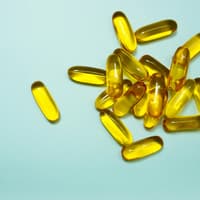
Selenium is vital for us
Selenium is an essential, i.e. vital, trace element. However, because the body cannot produce it itself, it must be supplied through food. The German Nutrition Society (DGE) recommends 60 micrograms per day - however, most people only manage 40 micrograms. A lot of it can be found in meat, fish, milk, cheese, cereal products, eggs, vegetables and nuts, for example.
Risk group for selenium deficiency
Due to their sometimes restricted diet, vegetarians and vegans are therefore more prone to selenium deficiency. But anyone who drinks a lot of alcohol, smokes, suffers from chronic intestinal problems, has to undergo dialysis, is pregnant or breastfeeding is also at risk. Overall, women are more likely to have a selenium deficiency than men.
Tasks of selenium
The importance of selenium for the body should not be underestimated. The trace element regulates thyroid metabolism, strengthens the immune system, supports muscle function and is even considered a natural weapon against cancer.
Measures for selenium deficiency
Those affected should take the required amount of selenium through food or food supplements (e.g. Verla purKaps, pharmacy). The maximum daily amount is 200 micrograms; higher amounts should be taken in consultation with your doctor. An overdose of selenium can even have a toxic effect and cause liver poisoning, for example.






